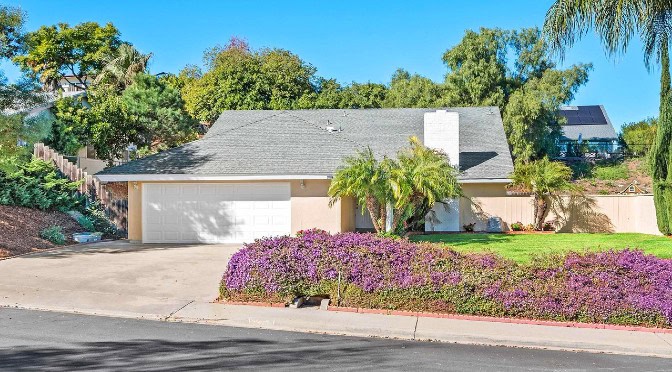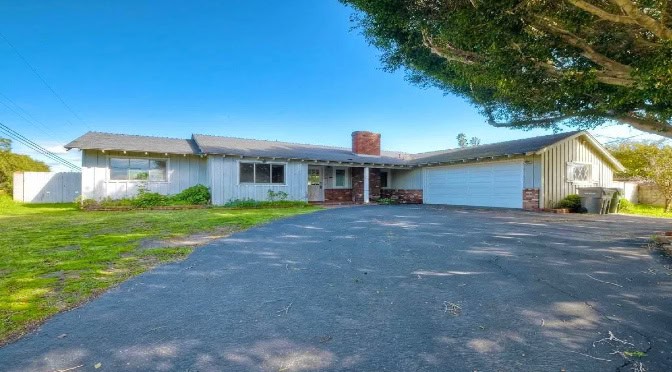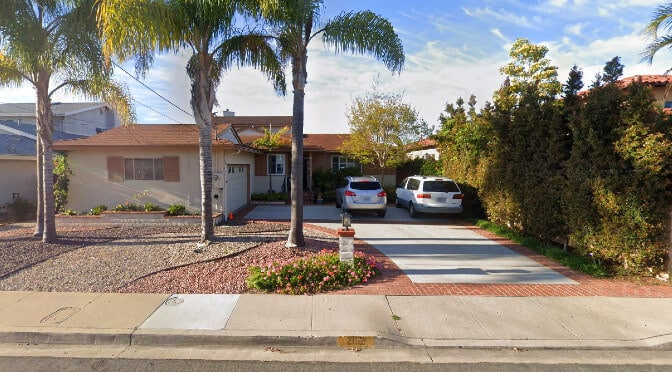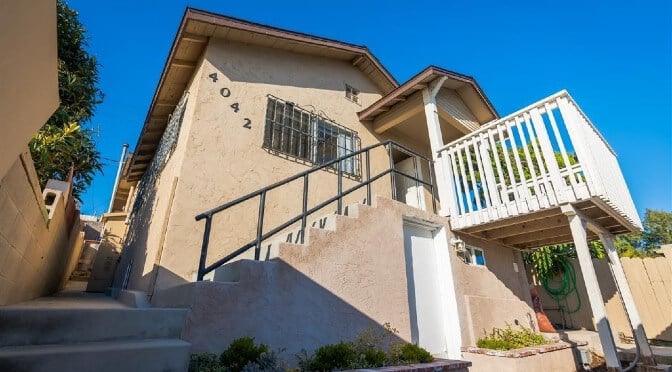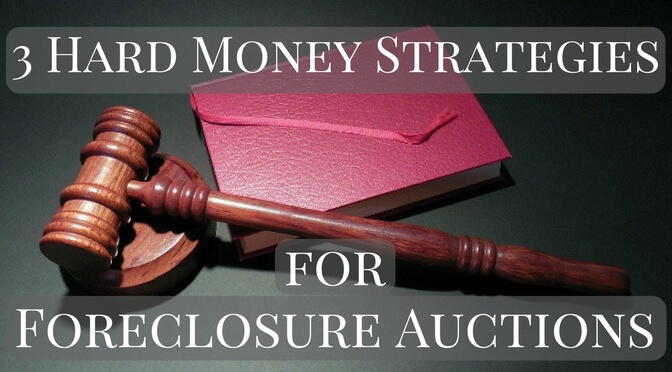
3 Hard Money Loan Strategies for Foreclosure Auctions (Trustee sale)
Distressed properties often create an opportunity for a risk-taking real estate investor to potentially lock in profit on the front end of a project.
Many real estate investors in search of a below market value property have considered purchasing at a foreclosure auction (trustee sale). While the potential to make a healthy profit exists, the potential to inherit some major problems is possible as well.
Real estate investors often prefer to use financing for their deals in order to maximize their leverage, liquidity and the amount of concurrent deals they are able to do, but financing for foreclosure auctions in general isn’t available.
Hard money lenders cannot directly fund a foreclosure auction purchase
Some borrowers mistakenly think hard money lenders are able to directly fund purchases at foreclosure auctions but this isn’t the case. Hard money loans must be secured against real estate. Lenders can’t simply write a check to an investor and hope they are the winning bidder at the auction and will subsequently sign the appropriate documents to secure the lender’s loan. In order to secure a loan against a property the transaction should go through the escrow process.
Private lenders also require that title insurance is obtained for each transaction to ensure there aren’t existing liens on the property that would jeopardize the lender’s position.
Neither escrow nor title insurance are available at foreclosure auctions. The winning bidder submits their cash payment and they are immediately the new owners of the property (after the necessary documentation is completed by the foreclosing trustee).
Foreclosure auctions require all cash
Foreclosure auctions require a purchase with cash only (cashier’s checks). The auctioneer will need to see the amount of cashier’s checks each bidder has prior to them being allowed to bid at the auction. There are no other options and financing will not be accepted.
While directly funding a foreclosure auction purchase with hard money is not available, there are a few strategies involving hard money loans to consider:
Hard Money Strategy #1 – Purchase with all cash and then cash out refinance
If the real estate investor has sufficient cash, they can make the purchase with cash and then immediately do a cash out refinance loan with hard money. This allows the real estate investor to acquire the property quickly and then promptly raise cash in order to increase their liquidity.
Hard Money Strategy #2 – Cash out refinance against existing property with hard money loan
If a real estate investor already owns other property with equity, they may be able to take out a hard money loan against the existing property to raise enough cash for the auction purchase. Once the auction purchase has been finalized, the real estate investor will be able to arrange for financing on the newly purchased property if desired.
Hard Money Strategy #3 – REOs at Real Estate Auction Websites
Online real estate auction sites such as Auction.com and Hubzu.com list foreclosure sales as well as bank owned properties (also known as REO). REOs are properties that failed to sell at the trustee sale at which point the ownership of the property goes to the lender.
In many cases, the seller of the REO property will require all cash but some sellers will consider specific types of financing (conventional, FHA, hard money). Hard money loans are the most likely type of financing to be accepted in this situation.
It is understood that hard money lenders are able to fund loans much faster and with far fewer issues than a conventional lender, which is why hard money financing may be accepted as a type of financing while others are not.
Contact the auction company directly to determine if the seller is able to accept any form of financing for the specific property of interest. The acceptance of financing may vary from property to property.
Benefits of Purchasing Property at Foreclosure Auction
The major upside of purchasing at a foreclosure auction is potentially acquiring a property below market value. There are few investors willing to purchase real estate with limited information about the property’s physical condition and any issues on title. There are even fewer investors able to purchase with all cash. These two factors decrease the amount of bidders and ultimately the price.
Experienced real estate investors understand that an enhanced profit is locked in when the property is purchased at a below market value which gives meaning to the saying, “You make money when you purchase the property, not when you sell it.”
Risks of Purchasing at Foreclosure Auction
Purchasing foreclosures at auction can be a very risky endeavor. The major risks stem from not having enough information about the property prior to bidding. The major problems are assessing the current condition of the property and not knowing what types of liens are attached to the property that the buyer will be inheriting.
Property cannot be inspected prior to sale
It’s difficult to get an accurate assessment of the condition of the property as viewing the inside of the property is rarely ever allowed. The property could be in great shape and it could also be missing all of the cabinets, copper wiring and fixtures as well as having foundation problems.
Property is purchased “As Is”
Regardless of any problems with the property, the buyer is not able to request any repairs. All property issues must be dealt with after it has been paid for by the winning bidder.
The transaction does not have title insurance
It is very difficult to know what other liens besides a 1st and 2nd are on the property, especially when dealing with a very short auction timeline. Certain liens such as tax liens, unpaid child/spousal support stay with the property and have to be paid off by the winning bidder.
Inheriting tenants
Another unwelcomed surprise for a foreclosure property may be finding out the property is occupied by tenants. They may be renters, squatters or the previous owners. Hopefully they are cooperative but they are now the problem of the winning bidder.
In Conclusion
As with any investment, deciding whether or not to purchase real estate at a foreclosure auction comes down to risk vs reward. If the property can be acquired for a deep enough discount it may outweigh any potential expensive problems discovered after the purchase.
Hard money loans can’t be used to fund foreclosure auction purchases directly but there are indirect ways to utilize hard money to increase the chances of acquiring an undervalued piece of real estate.
Recent Hard Money Loans Funded by North Coast Financial
California Hard Money Loan Request
We will contact you to review the loan scenario and provide a quote.

